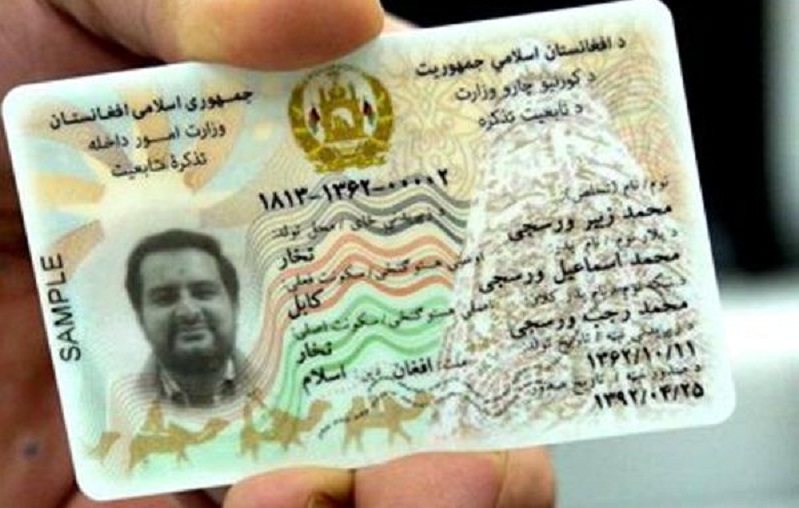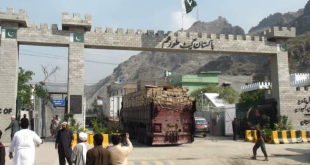Identity card is a national identity, document issued to citizens of a country everywhere around the globe. Tazkira (National Identity Card) is a recognized proof of our identity, citizenship and residence. For the past few years, among other long debated issue, one was the rollout of Electronic National Identity Cards (e-NIC). Unfortunately, politicization of the word “Afghan” remained the main obstacle for the suspension and delay of the e-NIC rollout process. However, in March, President Ashraf Ghani approved the amended draft of the census law to authorize the printing of the word “Afghan” on e-NIC as the “nationality” for all the Afghan masses. The amendments in Article Six of the law were recommended by the Second Vice President Sarwar Danish at a time when he was presiding over the Ghani’s cabinet law committee. Exercising the amended law, the officials of the Biometric Identity Cards Issuing Authority (BICIA) announced rollout process in capital, Kabul through ten ministries and five e-NIC centers and as well as the Afghan embassies abroad. At least 500,000 Afghans were enlisted to receive e-NIC in first phase. The said authority hired thirty teams, consisting 13 members each to work on the system and precede the process. Consensus on the issue was another achievement of the National Unity Government (NUG) which gained a wide range public popularity. Last day, members of the Wolesi Jirga opposed the Presidential decree to amend the law of population registration office and e-NIC. This unpopular move by lawmakers, resulted in giving birth to several anger and criticism against them in public. Some political parties and civil society activists launched peaceful protests against decision made by the lawmakers. However, a large number of parliamentarians had voted in favor of President’s decree, however, it also turned into vain. On the other hand, the population registration office and e-NIC on Tuesday said, as per law e-NIC would contain the word “Afghan” and the process is in final stage to be launched within this month. They believe parliament’s vote on population registration law does not affect work of the authority. By constitution, all citizens of the country are Afghan. So, why not in Tazkira? The NUG leadership and public representatives must have to realize their individual and collective responsibilities when it comes to national interests and consensus. Opposing popular and fundamental amendments in population registration law was not a wise decision of the Parliamentarians. Since the ouster of the Taliban regime in 2001, the non-presence of e-NIC was always considered as the main factor behind the worst security situation in the country. Militants and enemies of Afghanistan had been freely traveled to carry out heinous acts of terrorism in any part of the country. By nature, individuals in possession of e-NIC have been less likely to commit crimes. It also paves way to fairer and transparent electoral process for the Wolesi Jirga and provincial councils. Meanwhile, it is key for having a transparent presidential election—a fundamental pillar of democracy. Holding transparent elections in the country is a general demand and insecurity is the major issue. Keeping in view the prevailing situations, collection of biometric data of our people in order to regulate them in a better way is very much necessary. It can also help our patriotic national defense and security institutions to chase insurgency in mountains and valleys across the country. But, the process of e-NIC was deliberately delayed since 2014. It’s the duty of all the concerned channels and departments of the government to precede and manage the process without any further delay. Efforts should be made to reach national consensus on the issue, without removing the word “Afghan” on e-NIC, because ‘Afghan’ doesn’t represent one ethnicity of our society. Afghanistan is just like a garden with different colors of flowers. All the citizens of the beloved Afghanistan are equal in rights. We are all parts of the same body, having shared valves, culture and history. We wouldn’t let to be divided on religious, racial and linguistic basis. Now we should learn how to seek unity in diversity. At this critical stage, Afghanistan and its war-hit people are in need of collective wisdom to overcome challenges and to bring peace, stability and prosperity to our motherland.

 Afghanistan Times
Afghanistan Times



